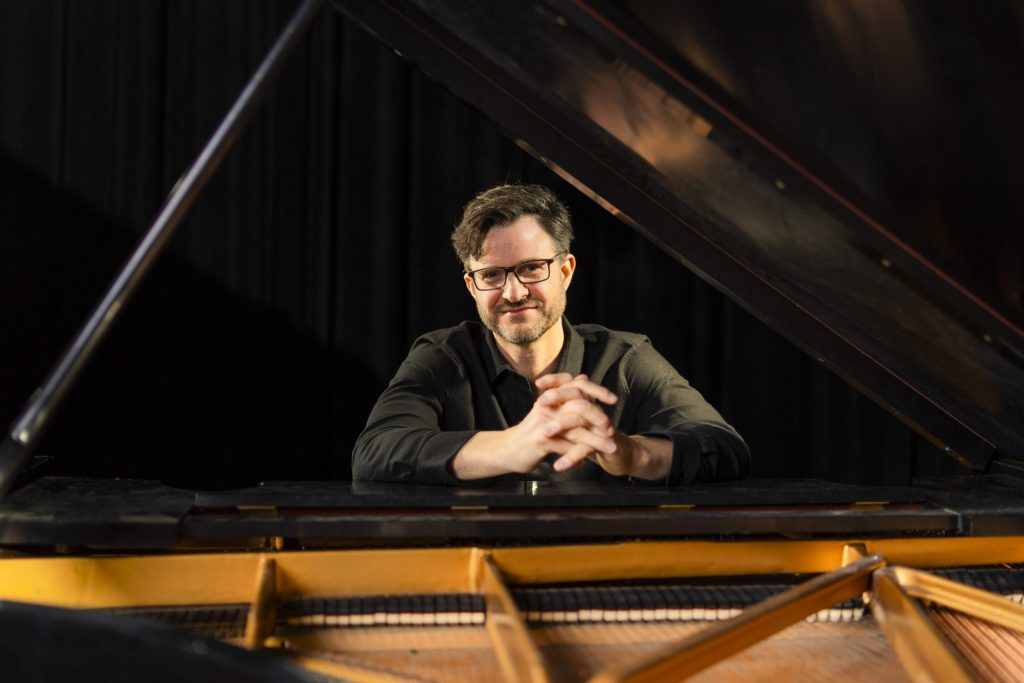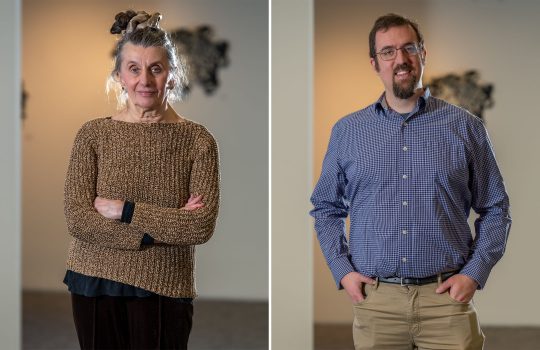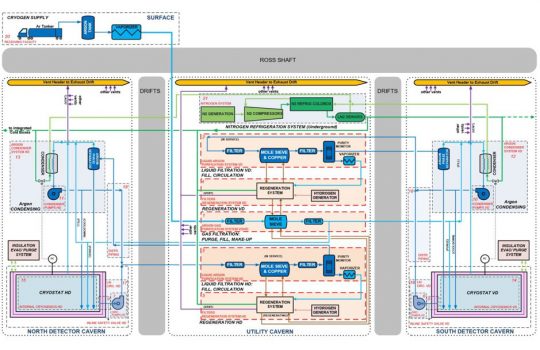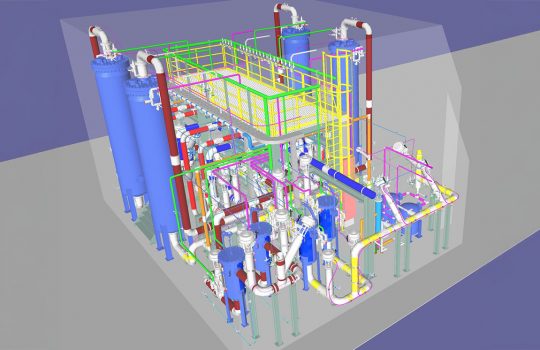Chicago-based composer and accomplished pianist Mischa Zupko has been named 2024 guest composer by the Fermi Research Alliance. In collaboration with scientists at the U.S. Department of Energy’s Fermi National Accelerator Laboratory, the Civitas Ensemble in Chicago and saxophonist Timothy McAllister, he will create music to interpret particle science in new ways.
“From what I have come to understand, the ability to imagine, in a physical sense, phenomena relating to the behavior and interaction of elementary particles is impossible, but the attempt to imagine, is where the beauty lies,” he said.
For many of his compositions, Zupko draws inspiration from themes of the universe, cosmic phenomena and mathematical models. Eclipse: Chamber Music of Mischa Zupko, with violinist Sang Mee Lee and cellist Wendy Warner, was recorded by Cedille Records in 2016 and conveys the alignment of the sun and moon, while the evening sky is the focal point in his cello piece From Twilight. Zupko stated in his guest composer proposal that these subjects are “spiritual” to him and to the music that he writes. He is eager to work with Fermilab scientists to musically explore projects such as the Deep Underground Neutrino Experiment.

Guest composer Mischa Zupko will work with Fermilab scientists to interpret particle science in new ways. Photo: Dan Svoboda, Fermilab
Zupko will not only collaborate with scientists on his Fermilab composition, but also with fellow chamber musicians Winston Choi, piano; Yuan-Qing Yu, violin; and Ken Olsen, cello, who are the members of the Civitas Ensemble, and guest Timothy McAllister, saxophone. While Zupko wrote Eclipse based on a specific mathematical model that he constructed, he hopes to compose his Fermilab piece based on a scientific model. He plans to include the completed composition as a world premiere recording on Cedille Records for a new release of his work in 2026.
“Though the mathematics [represented by Eclipse] are simple, they were essential in the process to achieve the very specific effect this piece intended and informed the intuitive aspects of the writing in profound ways,” he said. “I have always wanted to go deeper into this process, modeling numeric sequences on actual data from running experiments to see if the data itself can serve as a link between the various ways we experience our reality.”
Zupko is a third-generation composer. He received a Bachelor of Music in piano performance from Northwestern University, and a master’s degree and a doctorate in composition from Indiana University Bloomington. He has been named guest artist and participated in residency programs at various institutions, including the Fulcrum Point New Music Project, the Music Institute of Chicago, Western Michigan University, and Roosevelt University. Zupko has most recently had his music performed at Chamber Music Northwest, the International Tuba and Euphonium Conference, and the Grant Park Music Festival in Millennium Park, among others. Since 2010, he has served as lecturer of musicianship studies at DePaul University.
“Mischa Zupko’s profound grasp of musical theory and composition coupled with a longstanding curiosity about particle physics, along with previous compositions inspired by cosmic phenomena, renders him the ideal choice as the 2024 FRA guest composer at Fermilab,” said Visual Arts Coordinator Georgia Schwender, who manages the FRA guest composer program at Fermilab on behalf of FRA.
Editor’s note: Work created by former FRA guest composers and artists are featured in the public exhibition Beyond the Visible at the Schingoethe Center of Aurora University Jan. 29 – May 10, 2024. The exhibition will highlight Fermilab-inspired work by Mare Hirsch, David Ibbett, Jim Jenkins, Chris Klapper & Patrick Gallagher, Ricardo Mondragon, Ellen Sandor and Roger Zare.
The FRA guest composer program at Fermilab is funded by the Fermi Research Alliance, which manages Fermilab for the U.S. Department of Energy’s Office of Science. Fermi National Accelerator Laboratory is supported by the Office of Science of the U.S. Department of Energy. The Office of Science is the single largest supporter of basic research in the physical sciences in the United States and is working to address some of the most pressing challenges of our time. For more information, please visit science.energy.gov.



